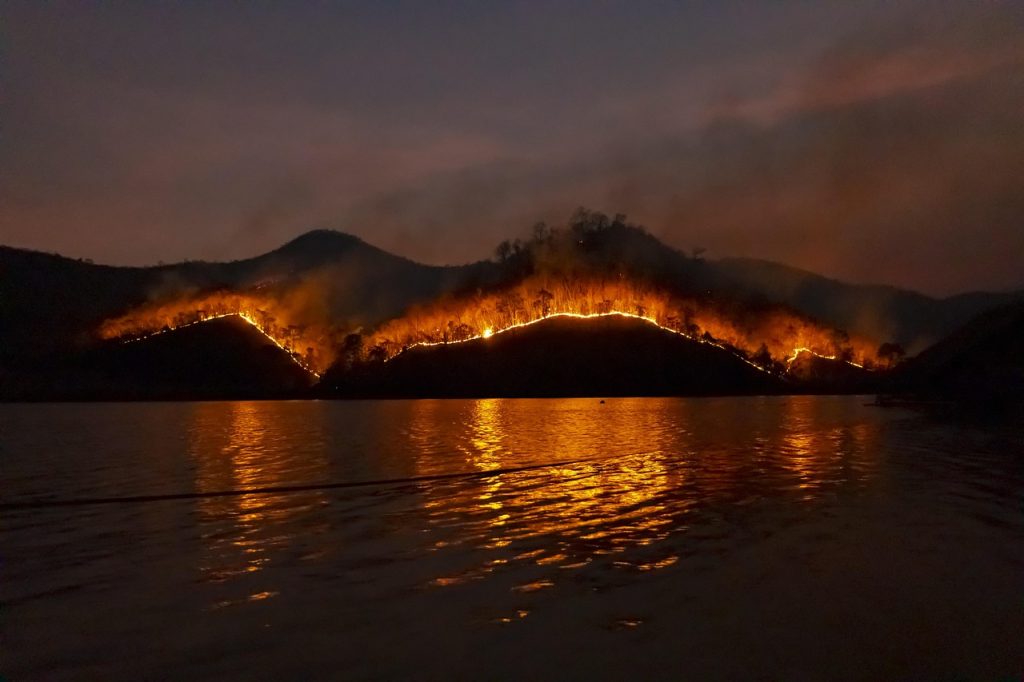When disasters strike, you don’t just watch the news—you become obsessed. You refresh social media constantly and seem almost excited by the chaos. You’re a disaster junkie, and you probably don’t even realize it.
Ever notice how you can’t look away from car accidents? How you refresh the news obsessively during crises? How celebrity scandals energize you more than success stories? You’re not alone—humans are psychologically wired to be fascinated by disasters and other people’s suffering.
Here’s why your brain is addicted to chaos, and what it’s costing you.
Your Brain Rewards Disaster Watching
Your ancestors who paid attention to threats and chaos were more likely to survive. Watching others suffer taught them what behaviors lead to bad outcomes without experiencing those consequences personally.
Your brain still runs this ancient software. When you consume disaster content, it releases stress hormones and dopamine—literally making it addictive. Your brain treats dramatic information as potentially life-saving intelligence, even when you’re safely watching through a screen thousands of miles away.
This is why you can’t look away from car accidents, why disaster movies are popular, and why news outlets lead with tragic stories instead of positive developments.
Other People’s Pain Makes You Feel Better
Schadenfreude—taking pleasure in others’ misfortune—is a fundamental human emotion. When you see others suffering, your problems seem smaller by comparison. Their disasters boost your relative status and self-esteem.
Celebrity scandals are particularly satisfying because they take people with seemingly perfect lives and reveal their flaws. Suddenly your ordinary life doesn’t look so bad.
There’s also a justice component. When disasters strike people you perceive as too successful or fortunate, it feels like cosmic balance being restored.
You’re Addicted to Drama
Social media algorithms amplify dramatic content because it generates more engagement. You’ve developed tolerance to normal levels of drama and now require increasingly extreme content to feel the same emotional stimulation.
You can maintain this addiction 24/7 through news apps, social media, and streaming services. When you don’t have access to dramatic content, you feel anxious and bored.
The addiction is reinforced by social bonding—discussing disasters with others makes drama consumption feel like social currency rather than voyeurism.
When External Drama Isn’t Enough
When you don’t have enough external disasters to satisfy your psychological needs, you create drama in your own life. You might find yourself consistently involved in conflicts and chaotic situations that provide the emotional stimulation you crave.
Some people manufacture problems in relationships or sabotage their own success because stable, peaceful lives feel boring compared to constant crisis.
You’re Being Exploited
Media companies have built entire business models around your disaster addiction. News organizations use fear-based reporting to capture your attention. Reality TV creates artificial disasters because you’re more engaged by conflict than happiness.
Social media platforms prioritize dramatic content in your feed because it generates more comments and shares. Real suffering gets packaged and sold to you as entertainment content.
The economic incentives of media companies align perfectly with your psychological vulnerabilities, creating systems that profit from amplifying human suffering for your consumption.
The Hidden Costs
Constant disaster consumption creates psychological costs you probably don’t recognize.
Chronic exposure to traumatic content can create symptoms similar to PTSD—anxiety, depression, and hypervigilance about potential threats. You become desensitized to suffering and require increasingly extreme content to feel emotional stimulation.
The constant negative stimulation interferes with your sleep, relationships, and mental health. It creates learned helplessness and cynicism that prevents you from taking positive action in your own life.
Time and emotional energy spent consuming disaster content displaces activities that would actually improve your life or help you develop meaningful skills and relationships.
Breaking the Addiction
Recognizing your disaster addiction is the first step toward developing healthier habits.
Limit news consumption to specific times and sources rather than allowing constant exposure through social media feeds designed to create addiction.
Develop real-world interests that provide genuine meaning and engagement rather than passive consumption of other people’s drama.
Learn to distinguish between legitimate concern that leads to helpful action versus voyeuristic consumption that serves no purpose except entertainment.
Focus on local issues where you can take meaningful action rather than consuming distant disasters you can’t influence.
Your Attention Is Valuable
The same psychological mechanisms that helped your ancestors survive now make you vulnerable to media manipulation that provides no real benefit to your life.
Breaking free doesn’t mean becoming indifferent to genuine suffering. It means recognizing when your consumption of dramatic content serves entertainment purposes rather than legitimate concern.
Your attention and emotional energy deserve to be invested in activities that actually improve your life and the lives of people around you, not consumed by distant dramas you can’t influence.
Take Back Control
Just because something captures your attention doesn’t mean it deserves it. You can choose what you consume and how you respond to the constant stream of manufactured drama.
What About You?
How much of your emotional energy goes toward consuming other people’s disasters? What would you do with that time and energy if you redirected it?
Remember: Your fascination with disasters is normal and evolutionary, but modern media has weaponized it against your wellbeing. Awareness is the first step toward healthier choices.
